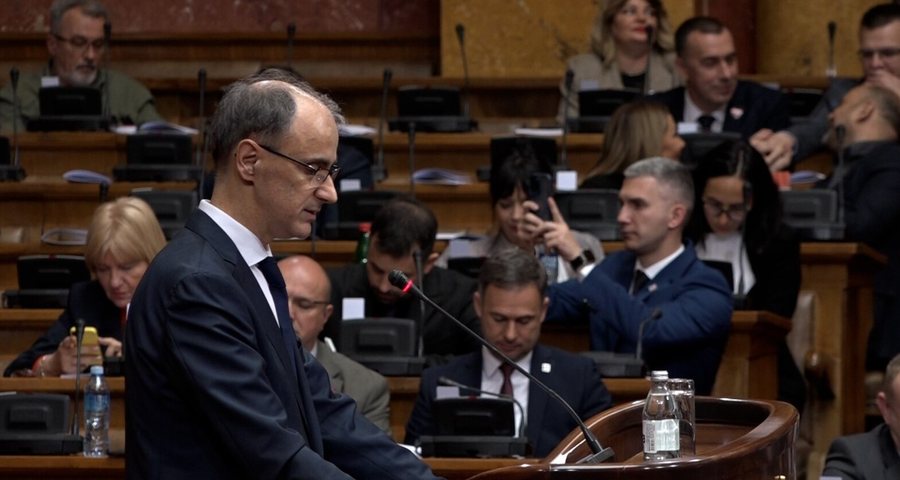
A session is being held in the Serbian Parliament today, in which the members of the new Serbian Government will be elected.
The proposal for the composition of the cabinet includes 30 ministers, 10 of whom are new names.
The mandate holder for the composition of the new Serbian Government, Gjuro Macut, in the presentation he presented to Serbian MPs, said that institutions must function at full capacity and that this is the fundamental task of the new Government.
"Serbia is tired of divisions and blockades. No one has or dares to have more rights than another, and this is the only measure of value," Macut said.
He said that protests and dissatisfaction are "a natural expression of youth divisions, but not blockades and the denial of the rights of others to work, to be educated and to live normally."
He added that his first priority is the functioning of schools and faculties.
"When you deny someone rights, such as the right to movement and education, then you become a usurper of the freedoms of others. My task is to discuss all grievances in all forums established by the Constitution and law and to support our youth in their efforts, but always in accordance with the Constitution and the law, and in a way that no one has more rights than others," said Macut.
Macut said that his request as prime minister will be for ministers to "be closer to the people and with the people."
"The government must gain mobility and efficiency in serving the people," said Macut.
On April 14, Macut submitted to the Assembly the proposal for the composition of the Serbian Government, along with the biographies of the proposed members.
Serbian President Aleksandar Vučić on April 6 entrusted the mandate to form a new government to endocrinologist and professor at the Faculty of Medicine in Belgrade, Macu. Vučić previously held consultations with parliamentary parties on the new government's prime minister, in which opposition parties did not participate.
The opposition has proposed the formation of a transitional government, which has been rejected by the ruling coalition in Serbia.
The Serbian government has been in a caretaker mandate since March 19, when MPs in the Parliament verified the resignation of Miloš Vučević from the post of Prime Minister, which marked the beginning of the 30-day deadline for electing a new government.
Vučević resigned after a group of students were beaten by activists of the Serbian Progressive Party who were blocking the work of faculties in Novi Sad.
The fall of the Serbian government, led by Miloš Vučević, occurred at the height of anti-government protests, led by students who have been blocking dozens of faculties across Serbia since late November 2024.
At the center of their demands, addressed to Serbian institutions, is the determination of legal and political responsibility for the deaths of 16 people in the collapse of the concrete shelter at the Novi Sad Railway Station on November 1 last year. REL (A2 Televizion)











